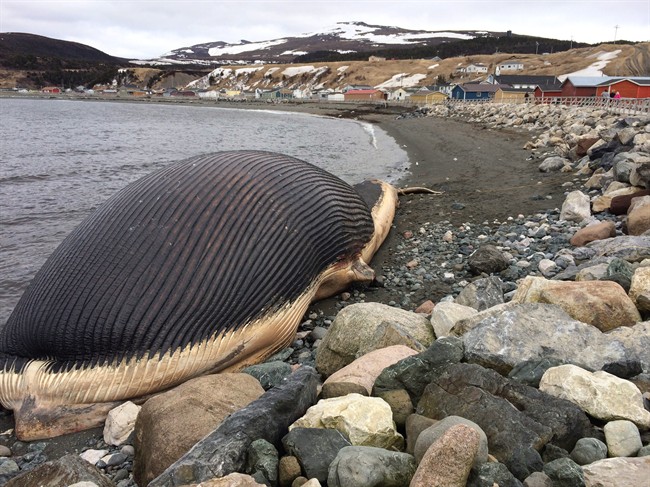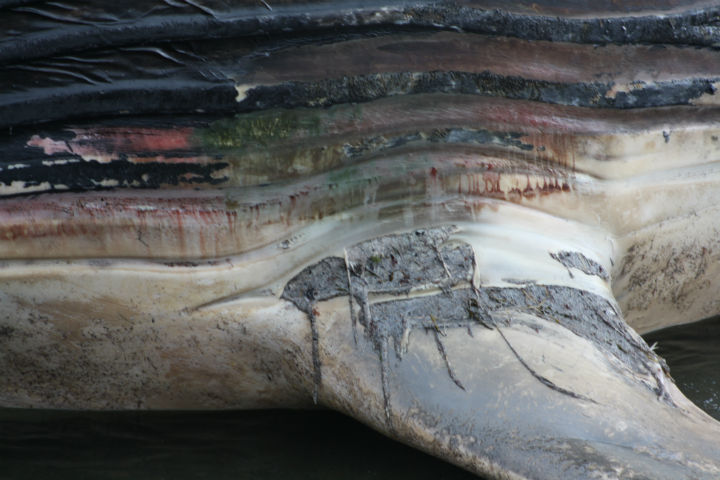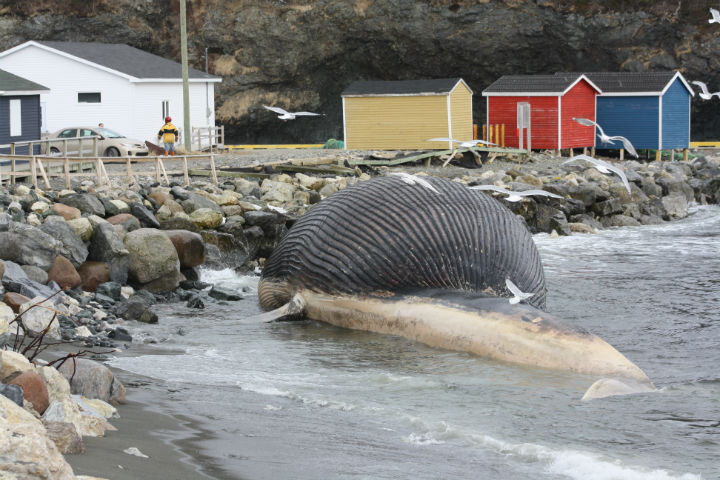If you were a betting man or woman you might be interested in a Facebook pool wagering on when a bloated, decomposing blue whale might explode in a small Newfoundland community.

Fortunately, for the town of Trout River, the swollen mammal is starting to deflate and there probably won’t be a sight such as in Faroe Islands last year, when a researcher cut open a dead sperm whale and had to flee a stomach-turning explosion of whale innards.
WARNING: The below video contains graphic content that may not be suitable for some viewers
But the odour emitting from the estimated 60-tonne beast is certainly starting to grow stronger.
“It’s just a rotten fish smell,” said Trout River town clerk Emily Butler. “But it’s really going to get worse as time progresses because the temperatures are going to get warmer.”
And, Trout River is still stuck with figuring out what to do with the carcass.
The 25-metre blue whale washed ashore early last week. It’s one of nine endangered blue whales that were crushed in ice off the southwest coast of the Rock in March.

Get daily National news
So far, there have been three bus-sized corpses that have floated back to land: aside from the one in Trout River, there is one confirmed to have washed up in Rocky Harbour and a third further north in the Bakers Brook area, according to the federal Dept. of Fisheries and Oceans (DFO).
READ MORE: Dead blue whales washing ashore in western Newfoundland
But, the rotting whale in Trout River has had local officials and townspeople concerned about what to do with it and how it could affect the upcoming tourist season.
The unexpected addition to the town is bringing tourists to Trout River, which is located on the edge of Gros Morne National Park.
There have been some suggestions about preserving the whale to keep it as a tourist attraction, she told Global News on Wednesday.
“They have to understand… this is a blue whale that is measuring 81 feet (25 metres) in length. That’s an enormous animal.”
She said people have come to her with suggestions of burning it, burying it or even dragging it out to sea.
Because the whale is on shore it falls on the town and the province to get rid of it. Butler’s hoping the provincial government will be able to help.
So far, she said official answers about what Trout River’s options are to get rid of the whale have been “vague.”
She said the provincial government indicated it had reached out to the Dept. of Municipal Affairs and the Dept. of Environment and Conservation, as well as DFO.
In a statement to Global News late Wednesday, DFO said it was working on a agreement that would see an unnamed Canadian museum “take ownership of the remains of the dead whales” that have washed up in western Newfoundland.
“This agreement will benefit impacted communities and ensure these magnificent whales contribute to the education of museum visitors,” the statement said.
DFO could not be reached for further comment in time for publication.














Comments